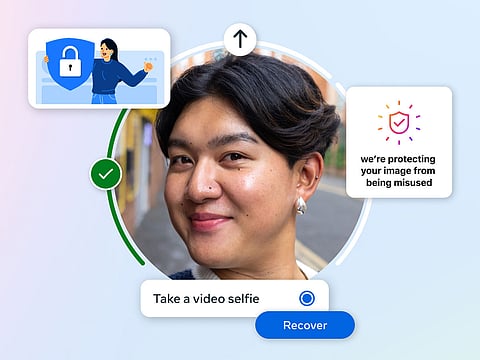New feature: Meta introduces facial recognition tools to combat scams
Meta’s new feature also helps in faster account recovery in the MENA region

Dubai: Meta is launching measures that use facial recognition technology to help detect and prevent scams and enable faster account recovery on its platforms across the Middle East and North Africa (MENA).
The facial recognition system is designed to identify and block deceptive ads that misuse and alter images of public figures to bait people into engaging with ads that lead to scam websites, where they are asked to share personal information or send money, a tactic known as “celeb-bait” scams.
Suspicious ads
By comparing images in suspicious ads to the profile pictures of celebrities and public figures on Facebook and Instagram, the system can automatically remove fraudulent content if a match is confirmed. The system immediately deletes any facial data generated from ads for this one-time comparison, regardless of whether it finds a match, and does not use it for any other purpose.
Public figures across the region are automatically enrolled in facial recognition protections, but can choose to opt out should they wish. This initiative is part of Meta’s broader strategy to combat scams that exploit the images of well-known individuals to mislead users.
Video selfie feature
Simultaneously, Meta is introducing a video selfie feature to assist users in regaining access to compromised accounts. Users can now verify their identity by uploading a short video selfie, which the system compares to their profile pictures — similar to the process people already use to unlock their devices. This verification method aims to streamline the account recovery process, reducing the time users are locked out of their accounts, while making it harder for hackers to circumvent compared with traditional document-based verification.
Celeb bait scams
As with detecting ‘celeb bait’ scams, Meta deletes any facial data used to help users regain access to their accounts immediately after the process is complete and does not retain or repurpose the data for any other use. The data is also encrypted while the process is ongoing and never shared.
Basma Ammari, Director of Public Policy, MENA at Meta, said: “Scams that misuse someone’s image aren’t just misleading; they can be devastating, causing significant emotional and financial harm. We have heard directly from public figures and everyday users across the MENA region about the distress these scams cause.
"That is why we are investing in technologies like facial recognition to proactively catch these scams and prevent them from spreading, and enhancing our verification tools to ensure users can quickly regain access to their accounts. These updates are part of our commitment to building a safer and more trustworthy online environment, specifically addressing the growing threat of identity-based scams in the region.”



